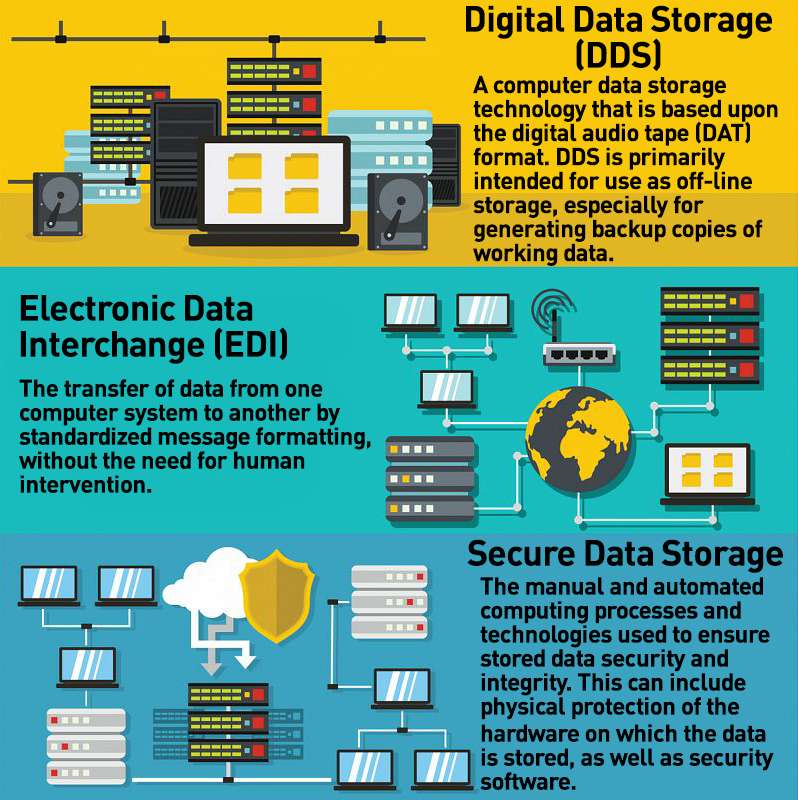Understanding the Duty of Data Destruction in Conditioning Cyber Security Defenses
Understanding the Duty of Data Destruction in Conditioning Cyber Security Defenses
Blog Article
The Vital Nature of Information Devastation in Upholding Computer System Safety And Security Providers and Protecting Against Unauthorized Access
In an age where data breaches and identification burglary are significantly common, the relevance of reliable data devastation can not be overemphasized. Organizations has to identify that the failing to appropriately deal with delicate info positions not only lawful and financial threats but additionally a prospective disintegration of customer depend on. Various methods, from information wiping to physical destruction, act as critical safeguards versus unapproved access. Recognizing the effects of data devastation methods and compliance with policies elevates vital concerns concerning the competence of present methods and their lasting practicality in the face of developing threats.
Significance of Information Devastation
In a progressively electronic world, the relevance of information damage can not be overstated. As organizations collect vast quantities of delicate details, the potential consequences of falling short to appropriately take care of and dispose of that information become increasingly severe. Data violations, identification theft, and business espionage posture considerable risks, underscoring the need of effective data damage methods.

In addition, as modern technology develops, so too do the methods through which harmful actors look for to exploit delicate information. Organizations has to stay cautious and proactive in their data devastation approaches to protect versus these advancing threats. By focusing on information damage, business not only safeguard their assets but also foster depend on among stakeholders and clients, demonstrating a dedication to responsible data administration and protection practices.
Techniques of Effective Data Destruction
To ensure the irreversible and complete damage of delicate information, companies can employ a selection of effective methods customized to their specific requirements. Among the most typical techniques is data cleaning, which involves making use of specialized software program to overwrite existing data several times, making recovery practically impossible. This is especially useful for solid-state drives and difficult drives, where conventional removal methods are inadequate.
An additional efficient approach is degaussing, which uses solid magnetic areas to interfere with the magnetic domains on storage space media, providing the information irretrievable. This approach is especially fit for magnetic storage tools, such as tape drives and hard drives.
Physical damage is additionally a viable choice, entailing the shredding, squashing, or incineration of storage space devices. This method warranties that data can not be recuperated, making it excellent for companies taking care of extremely delicate details.

Compliance With Data Defense Regulations
Organizations should not just concentrate on efficient information destruction techniques but likewise ensure conformity with data defense regulations that govern exactly how delicate info is managed and thrown away. Following these regulations is important for preserving and securing individual data customer depend on. Regulations such as the General Information Security Policy (GDPR) in the European Union and the Medical Insurance Mobility and Accountability Act (HIPAA) in the United States enforce rigorous standards on information monitoring, that include needs for the safe and secure disposal of sensitive details.
To accomplish conformity, companies have to implement extensive information devastation policies that straighten with these lawful frameworks. This consists of recognizing data that requires devastation, establishing procedures for safe and secure methodsâEUR" such as shredding physical media or using software that meets industry requirements for data wipingâEUR" and keeping comprehensive records of devastation activities. Normal audits ought to be conducted to ensure adherence to these policies and to recognize any prospective locations for improvement.
Failing to abide with information security regulations can result in significant lawful ramifications, including substantial fines and damages to a company's credibility. Consequently, integrating conformity right into information destruction methods is not just a legal responsibility yet additionally a critical component of a robust information safety strategy.
Repercussions of Poor Data Handling
Poor data handling can bring about extreme repercussions that extend past immediate operational troubles. Organizations might face substantial monetary losses due to information breaches, which frequently cause expensive removal initiatives, lawful costs, and governing fines. These monetary ramifications can impede and strain sources development, ultimately affecting an organization's bottom line.
Additionally, inadequate data handling can severely damage browse around this web-site a company's reputation. Clients, stakeholders, and partners might lose count on an entity that falls short to safeguard delicate information, leading to decreased client loyalty and potential loss of business opportunities. This disintegration of trust fund can take years to restore, if it can be restored in any way.
In addition, organizations can face legal ramifications emerging from non-compliance with data protection guidelines. Such offenses may lead to fines and investigations, compounding the financial concern and more tarnishing the organization's picture.
In the realm of cybersecurity, insufficient data management practices can produce vulnerabilities that make systems much more susceptible to unauthorized gain access to and cyberattacks. Ultimately, these repercussions emphasize the important significance of carrying out durable data handling procedures to guard sensitive info and preserve business stability.
Best Practices for Secure Data Disposal


First of all, data must be classified according to its sensitivity. sites Delicate info requires a lot more rigorous disposal methods, such as shredding physical papers and using sophisticated software program for electronic data wiping. Using qualified information destruction solutions makes sure compliance with sector regulations and standards.
Second of all, companies need to apply an information disposal policy that mandates regular audits. This plan should outline the procedures for information retention and destruction, making sure that out-of-date data is taken care of immediately and safely. Educating staff members on these protocols is vital to promoting a culture of safety and security awareness.
Finally, preserving thorough records of disposed information boosts accountability and offers a clear audit trail. This paperwork should consist of the type of data ruined, the approach utilized, and the day of disposal.
Conclusion
Embracing durable approaches such as data wiping, degaussing, and physical destruction, alongside compliance with policies like GDPR and HIPAA, is vital for securing sensitive details. Ignoring proper information disposal techniques can lead to serious repercussions, including information breaches and legal repercussions.
In an age where information violations and identification burglary are increasingly common, the importance of efficient information devastation can not be overemphasized. data destruction. Data my response violations, identity burglary, and business espionage pose significant dangers, highlighting the need of reliable data destruction methods
Compliance with laws such as GDPR and HIPAA mandates that organizations apply rigorous data protection procedures, including the protected damage of information at the end of its lifecycle.
By prioritizing information devastation, business not just secure their assets but additionally foster trust amongst customers and stakeholders, showing a commitment to responsible data monitoring and security methods.
Organizations must not just concentrate on effective information damage approaches yet likewise make sure compliance with data security regulations that regulate how sensitive information is handled and disposed of.
Report this page